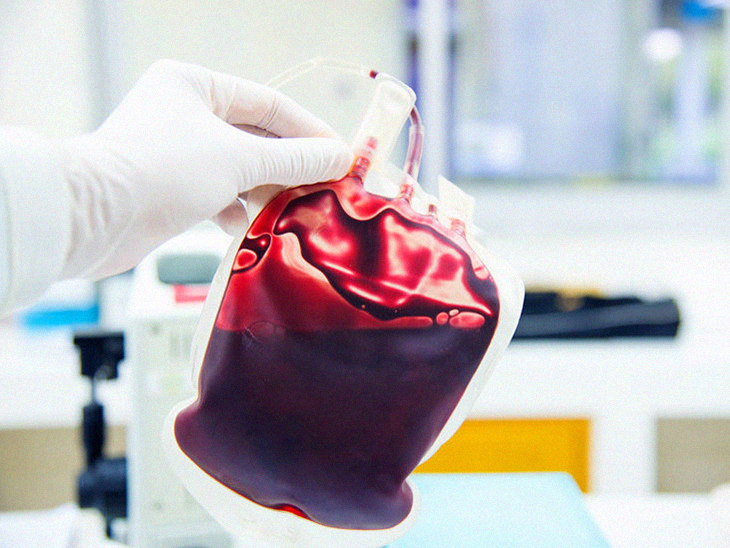
“Blood is thicker than water” is an old saying about the significance of family ties. But in the medical world, you don’t desire thick blood. Thick blood, formally trouble as hyperviscosity syndrome, spells hassle for your health.
The trouble with thick blood is that it flows extra slowly through your circulatory system, delaying the transport of nutrients and oxygen to your cells. Plus, when your blood is thicker, you’re extra prone to getting blood clots which can block blood vessels in your heart, brain, or lungs.
As you know, Eliquis 5 mg is a med that is used to inhibit the creation of serious blood clots. Clots normally develop due to a scenario that reasons irregular beating of heart muscular tissues usually referred to as atrial fibrillation.
What Causes Thick Blood?
There are various factors that can reason thick blood, including:
- Aging
- A sedentary lifestyle
- Genetics
- Heavy metals
- A lack of essential fatty acids
- Environmental toxins, including EMF’s
- Cigarette smoke
- Radiation
- Bacteria, viruses, and parasites
Some people also have a high hematocrit count that means there are too many red blood cells in the body, which can thicken the blood. Or, they have red blood cell deformability, which occurs when red blood cells are misshapen and extra prone to clotting. Plus, there are issues like lupus and certain cancers that can reason thick blood.
How Blood Thickens
Your red blood cells are intermingled interior spider web-like configurations. These strands are known as fibrin. Without fibrin, you’d bleed to loss of life from any cut or scrape. Your body’s job is to produce just enough fibrin to help your blood to clot when it wants to, however not so much that you stop up with thick blood.
When you have too many clotting factors, your red blood cells get caught up in a “fibrin web” that locks them down. The artery walls get injured and vulnerable, and your blood will become sticky, which leads to clumps and clots. These fibrin webs are a primary contributor to hyperviscosity, sludging, plaque formation, and eventual blood vessel closure (thrombus).
There are several factors that make contribute to imbalances in the clotting process. One famous cardiologist, Dr. Kenneth Kensey, says it all with his picture of “red wine vs. red ketchup.” Our purpose should be to keep our blood like the best red wine instead of raw ketchup.
Thickened Blood Symptoms
Signs of thick blood can include:
- Headaches and dizziness
- Shortness of breath
- Fatigue
- Difficulties concentrating
- Night sweats
- Blurry vision
- Excessive bruising
- Gout
- Itchy skin
How to Test for Blood Thickness
At your next medical examination, ask your doctor to check your C-reactive protein (CRP), homocysteine, LP (A), and fibrinogen. These are the inflammatory mediators that reason inflammation which thickens the blood.
Your aim is a “clean” CRP level below 1mg/L. A greater CRP reading shows the presence of inflammation, and much higher (say more than 10 mg/L) might be a sign of an autoimmune disease, most cancers or an infectious condition.
How to Maintain a Healthy Blood
Exercise.
You can groan, however, the cause there is an overlap between the steps is that “being healthy” is a holistic experience. You are dealing with exactly the same body. When you goal to improve your circulation through exercise, your heart, as consequence, receives stronger and extra capable of relieving the pressure on your arteries. Thus, decrease blood pressure too. It’s a win-win scenario that really should inspire more people to begin walking.
Improve your diet.
This means drinking more water to cope with the new exercise hobbies and to hold your blood fluid. This means avoiding high sodium foods and things that raise your blood sugar like complex carbohydrates. This also capability introducing certain blood-positive (ha!) food into your diet like legumes, berries, cayenne pepper, and others. The food you want should be these that are rich in iron, magnesium, potassium, and protein.
Manage your stress.
It’s common to say that whenever you are stressed or annoyed, you feel like your blood rises. This isn’t that away from the truth: when you’re stressed, the blood vessels in your body constrict, inflicting poor circulation. Whether it’s a massage, meditation, yoga, deep breathing techniques, or simply relaxing while your feet are propped up towards the wall — there’s bound to be a technique of stress management that works for you. Some of these mentioned even have very specific advantages for blood flow, like slowing your heart charge.


